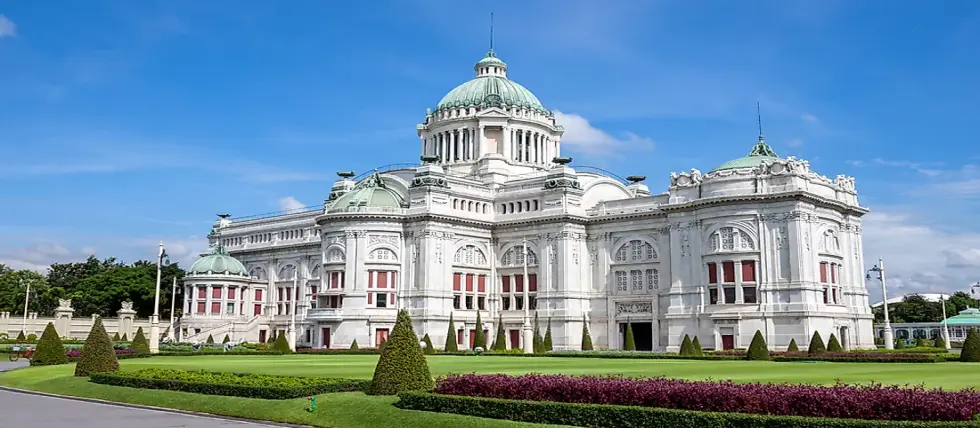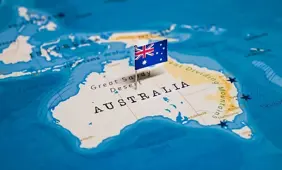Group Claims Thailand Casino Bill Language Violates State Law
Thailand's plans to legalize casinos continue to incite controversy, including from some people who have helped form the country's government. A group of 30 individuals involved in the drafting of Thailand's 2007 constitution has raised concerns over the legality and ethics of the government's proposed Entertainment Complex Bill.

The Bangkok Post reports that the group has submitted an open letter to House Speaker Wan Muhamad Noor Matha and Senate Speaker Mongkol Surasatja urging that the bill be withdrawn. These individuals argue that the legislation may violate constitutional provisions and contradict the National Strategy Act, which outlines long-term development policies for the country.
Related: Thailand's Senate Wants Additional Studies of Casino ProposalThe Entertainment Complex Bill, which includes provisions for the development of integrated casino resorts, is set for review by the House of Representatives this week. The bill has triggered backlash due to concerns over transparency, legality, and its potential social impact. The group contends that the bill was not presented as a campaign policy by the ruling Pheu Thai Party or its coalition allies prior to the most recent general election, thereby lacking a democratic mandate.
One of the key legal issues raised by the former charter drafters involves potential violations of Sections 65 and 75 of the Thai constitution. These sections require government policies to align with the national strategy and for state resources to be managed for maximum benefit to the public.
The group claims the bill could breach these rules by allocating state-owned land for private casino developments without assurances of adequate public return. They also cited the absence of mechanisms to prevent misuse of state assets and inadequate measures to mitigate social harms related to gambling addiction.
Concerns also extend to the possibility that the legislation could facilitate organized crime by opening the door to illicit financial activity under the guise of legitimate business. The group emphasized that the draft bill contains no concrete safeguards against such risks and could worsen gambling addiction by making access to casinos more widespread. The lack of built-in protections for vulnerable populations has been highlighted as a serious oversight.
More Regulation News
Bill Advances Despite Controversy
Despite the mounting criticism, Prime Minister Paetongtarn Shinawatra has stated that her administration is not rushing the bill's passage. She noted that the government is currently prioritizing recovery efforts following a recent earthquake, and any legislative action must be carefully reviewed to ensure its appropriateness and accuracy.
Deputy Prime Minister Phumtham Wechayachai, meanwhile, defended the bill as a crucial tool for stimulating the economy, particularly in light of increasing trade challenges such as rising tariffs on Thai exports from the United States.
The bill was approved by the cabinet on March 27 and is expected to be discussed in parliament as early as Wednesday, April 9. Chief government whip Wisut Chainarun indicated that the bill might even be tabled for discussion sooner, depending on the parliamentary schedule. While he acknowledged that the bill would be given proper scrutiny in the House, he also expressed confidence that coalition lawmakers would likely support it.
Deputy Finance Minister Julapun Amornvivat has provided further insight into the bill's scope, noting that each entertainment complex is projected to span approximately 118 acres. This land allocation is roughly half the size of The Venetian Macao, one of the world's largest casino resorts.
Under the proposed legislation, gaming areas would be restricted to no more than 10% of the total land or usable building space, whichever is smaller. Julapun added that construction on the projects could begin within three years of the bill's enactment.
Plans for the entertainment complexes focus on leveraging existing tourist destinations to enhance spending per visitor. Government officials anticipate that these integrated resorts will become economic hubs aimed at increasing Thailand's competitiveness in the regional tourism market. However, only six international integrated resort operators are currently expected to bid for licenses, with most expressing interest solely in projects located in Bangkok.
RELATED TOPICS: Regulation
Most Read
Must Read
 Interviews
Interviews
Sweepstakes Casinos: Thriving in an Ever-Changing Industry – Interview with Attorney Stephen C. Piepgrass
Feb 17, 2025 Interviews
Interviews







Review this New Post
Leave a Comment
User Comments
Comments for Group Claims Thailand Casino Bill Language Violates State Law